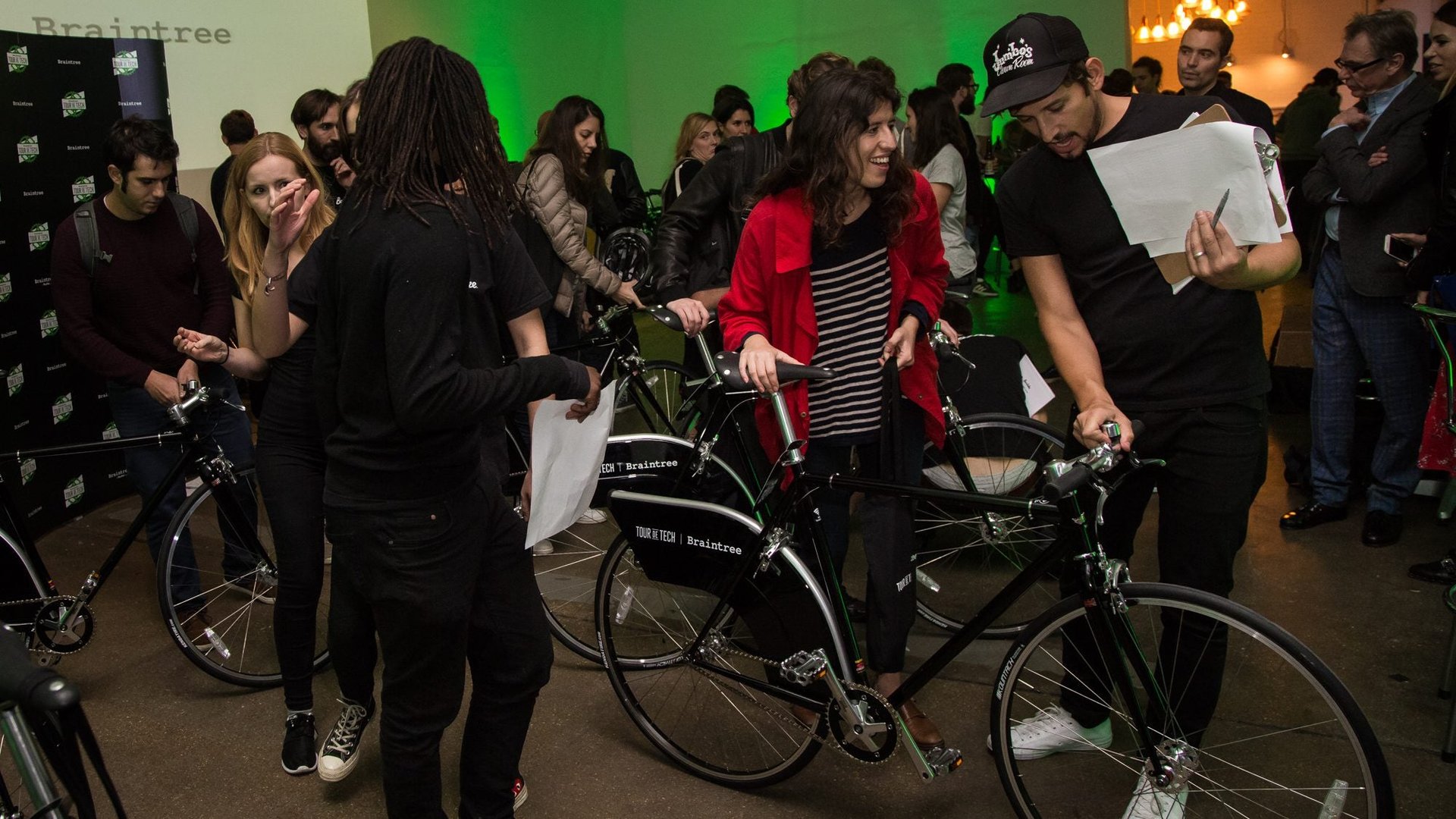Londoners will be able to get a £1,000 bicycle for free, with a few small conditions
Get a bicycle for free, as long as you’re prepared to be a mobile ad billboard—and as long as you’re the right kind of mobile ad billboard. That’s the pitch from BuzzBike, which is using an ad-supported model—not unlike the ones beloved of the internet’s biggest companies—to disrupt urban cycle rentals, starting in London.


Get a bicycle for free, as long as you’re prepared to be a mobile ad billboard—and as long as you’re the right kind of mobile ad billboard. That’s the pitch from BuzzBike, which is using an ad-supported model—not unlike the ones beloved of the internet’s biggest companies—to disrupt urban cycle rentals, starting in London.
BuzzBike provides a single-speed cycle that blends right in at an artisanal doughnut shop in Brooklyn or Shoreditch. It says the bike would retail for £1,000, and it throws in a bunch of extras, including locks, lights, maintenance, discounts at cycling brands, and insurance.
In return, the bike has an ad affixed to its rear mudguard. Moreover, BuzzBike chooses who gets the bikes based on where they work, which determines where the bikes are parked and the ads are seen. Soho, Shoreditch, Notting Hill, Kensington, and Chelsea are desirable, the firm says. Users must also actually cycle to work regularly, otherwise their two-wheelers are revoked. To make sure, BuzzBike installs trackers. (All the data are anonymized and aggregated, it says.)
The company has 200 bicycles roaming the streets of London after a launch event on Oct. 14, at which Braintree, owner of payments app Venmo and a subsidiary of PayPal, was revealed as the first advertiser. But those bikes are restricted to employees of London tech companies, and they are part of an elaborate marketing scheme called the “Tour de Tech.”
During the Tour, cyclists are divided into teams to rack up the most mileage over six months, all logged in an app devised for the contest. A launch for the general public is planned for next spring, says BuzzBike co-founder Tom Hares.
BuzzBike seems to be a loose collection of trendy terms: cycle-share, urban, ad-supported, and single-speed. But there is a logic to its model. For instance, even the going rate for London’s official bike-share scheme is devilishly complicated to figure out, and it involves a series of registrations, PIN codes, and dongles to get right. With BuzzBike there’s no payment involved, and users can simply leave a bike locked to the nearest lamppost, instead of desperately hunting for an empty (or filled) docking station.
Besides, it’s not as if London’s “Boris bikes” are ad-free. The Spanish bank Santander paid £43.75 million for seven years to have its crimson logo emblazoned on 11,500 bikes and 748 docking stations across the city, and you still have to pay to use them. By contrast, BuzzBike doesn’t have the cost of building the docking stations or redistributing bikes to ensure stations are filled. As one user, who works at a language-learning startup in Bethnal Green, put it: “It’s your bike to use as you see fit.” That will certainly be true—as long as BuzzBike thinks you’re worth it.
Correction: A previous version of this article referred to Braintree as the “maker” of the Venmo app; it acquired the app in 2012